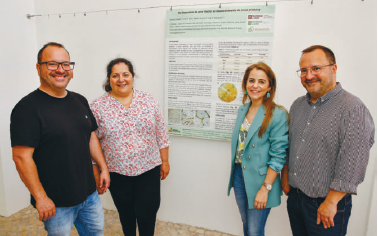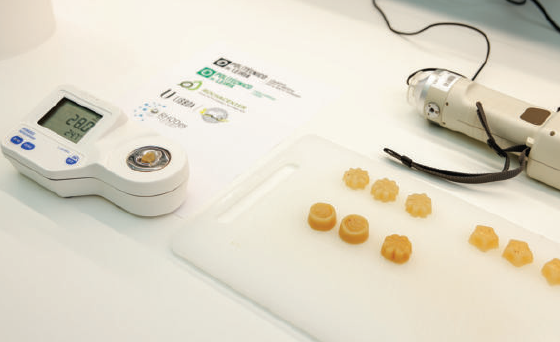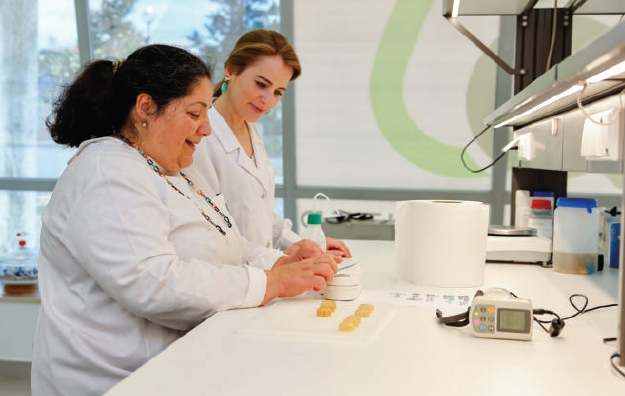


Photos by Mike Sergeant | Saúde Oral Journal
Marisa Gaspar, Ana Cristina Rodrigues, Luís Luís and Henrique Luís created a recent projet whose goal is to use the waste of the food industry that cannot be sold in the market, in order to produce new and inovative produts – more sustainable and healthier Pear jelly gums. This project was highlighted in the last edition of the Professional Journal of Stomatology and Oral Medicine, where the researchers could explain the research work itself.
“What we do is to use pears with some physical damage and that cannot go to the market because they do not meet the minimum quality requirements, turn them into a powder and be able to include this powder in the production of these gums,” says researcher Marisa Gaspar. By giving a second chance of life to this fruit, this project contributes to the promotion of sustainability and circular economy.
The use of Xilitol has demonstrated its anticariogenic effect since “it has reduced capacities of being metabolized by bacteria of oral cavity”, which reveals a great option and alternative.
The project, which was created in ciTechCare, enhances the importance of the close relation between Higher Education Institutions and companies and has a multidisciplinary team that counts on the partnership of RochaCenter – Center for Post-Harvest and Technology, ACE, integrates a research center of the Faculty of Dental Medicine of the University of Lisbon (FMDUL) and the RHOdes – Oral Hygienists Network.
Students of biotechnology and dietetics and nutition also have been working on this project, where they “colaborate in the processing waste and in the development of these jelly gums. ” Henrique Soares Luís explains that “From here, will result master and doctorate theses. Students will be able to attend the laboratories and develop the practical part that was something that maybe not were possible if we didn’t have this center of investigation”.
RochaCenter, created at the end of 2018, is a research centre held by 17 central fruit trees representing around 85% of the national pear production Rocha. Ana Crsitina Rodrigues, Coordinator of the RochaCenter points out that the most part the fruit with defects associated with the procedure “would go to the juice and pulp industry that also does not have an expressive appreciation and it is important that producers and central fruit trees are involved in searching for new healthy product alternatives and that allow the pear to be valued in a value chain.”
This research work has been present in several congresses and other professional events and the feedback has been positive among the community. However, Marisa Gaspar reveals that there is still some work to do, since “the texture is not real of a jelly gum, and we are trying to inovate this properties”.
Although some applications have been submitted, the project is still looking for fundings to further research, for example “to do some tests in animals to evaluate, lately, the effects this jelly gums can have in humans”, says the researcher Marisa Gaspar.
Read the ful article here: https://saudeoral.pt/wp-content/uploads/2023/09/SO_-n151_julho_-agosto2023.pdf
This work was funded by Portuguese national funds provided by Fundação para a Ciência e Tecnologia, I.P. FCT/UI/05704/2020
